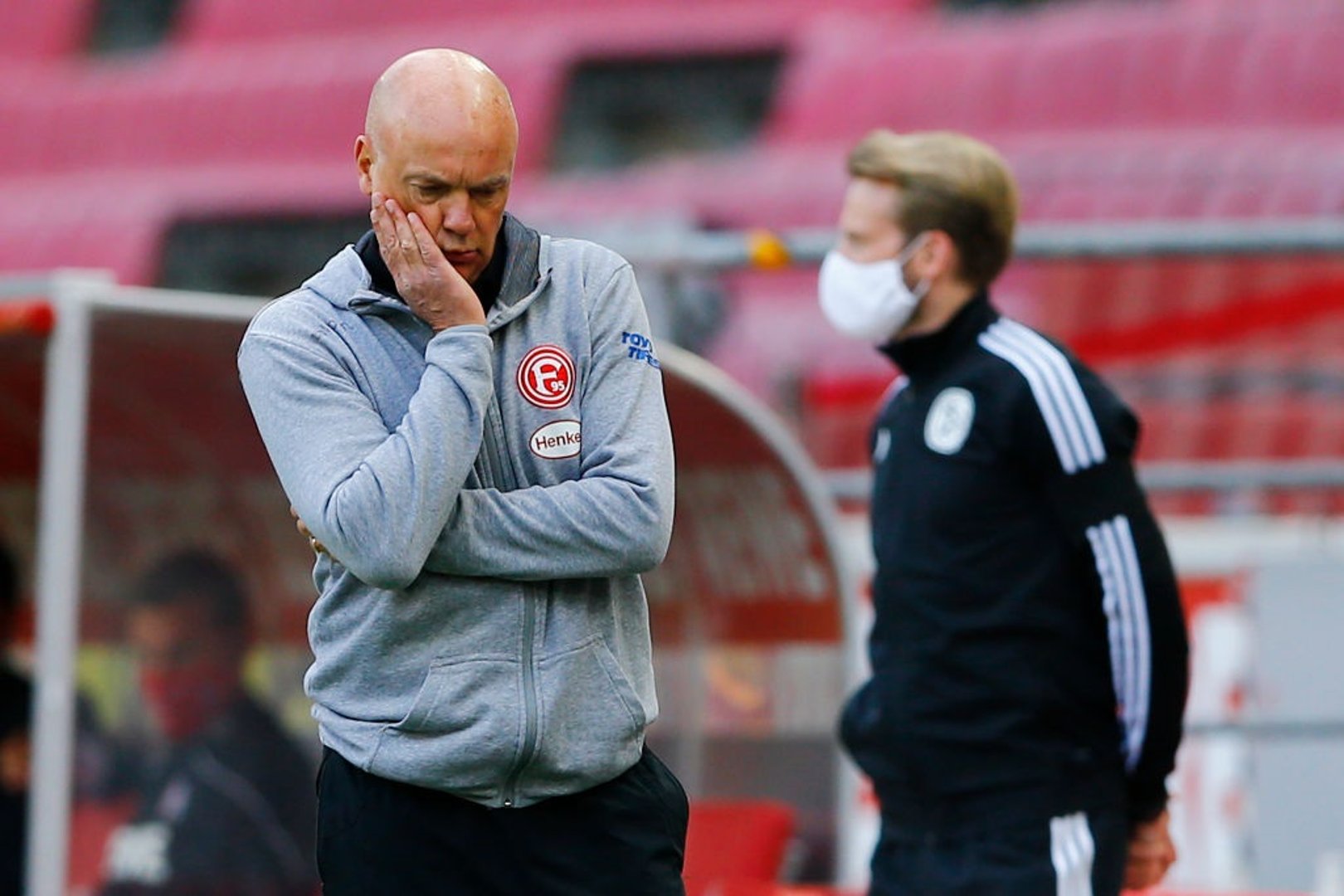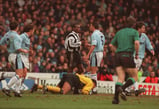In our exclusive Q&A, former City crowd favourite Rosler has revealed how the Bundesliga is dealing with the return of football.
The German league was one of the first to return to training and the first of the major European leagues to resume playing matches in the wake of the COVID-19 pandemic.
Rosler, who made 176 appearances for City and scored 64 goals between 1994-1998, has coached for the past 16 years at clubs including Brentford, Leeds United, Fleetwood Town, Malmo and is now in charge of Bundesliga side Fortuna Dusseldorf – his first management role in his home country.

RETRO CITY: Buy the 1995/96 classic shirt
But with City resuming training over the past week and the Premier League making tentative plans to resume the 2019/20 season, what will be the new normal in football?
Speaking ahead of Dusseldorf’s crucial game against Schalke this evening, Uwe took time out to reveal how things have been for him and his players since sporting restrictions were eased.
Uwe, English football is a little behind the Bundesliga in terms of recommencing – how’s it been so far for you?
“So far, it’s been a big challenge. It was a big challenge at the beginning of March when all the games were cancelled and we had to go into a mandatory break, but we did it differently. We trained throughout, didn’t take any breaks or free time so we had three weeks training at home and then began again in small groups. For five weeks, we didn’t know when we would start playing games again and then from week five to week seven there was more and more certainty that we would be starting again soon.
CITY+ - Free to Cityzens until football resumes
“Of course, then there is the challenge of how to motivate the players and to ensure the fitness levels were where we wanted them to be because although we had continued training, it was just basic fitness so we had to work on that. Then we had seven to nine days’ notice that games would resume with protocols in place from the Bundesliga and also the local health authority.
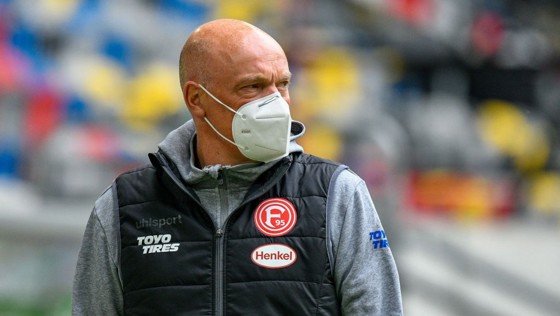
“We all had to undergo testing – I think I’ve been tested nine or ten times so far – and over time you get used to those things and everything seems to now be getting more normal – but a different kind of normal, because it will never be the same without supporters watching our games and full stadiums.
“Last week was our first home game without our fans and it made a big difference, but you have to accept the conditions as best you can and get on with it by showing mental strength and adapting because the ones who do that will have the best chance of getting the results they want.
“We did really well in our first game but drew 0-0 with Paderborn and I was relieved we were competitive, our fitness was good and we had the best running stats since I’d been at the club and we created four or five really good chances and did more than enough to have won the game. The result wasn’t what we wanted but it was a huge relief to see us play so well because we hadn’t had any practice games whatsoever.”
What were your thoughts when Dynamo Dresden were forced to quarantine their entire squad just before the season began again?
“I wasn’t concerned because they are a Bundesliga 2 side and I knew the Bundesliga had all the resources to ensure all the drastic measures were followed and ensure everything that needed to be done would be done. Many Bundesliga 2 and 3 sides just don’t have the financial resources needed or the facilities, so it is very difficult for them. On a matchday we have four dressing rooms just for our team and some lower league clubs just can’t do that. But we have to do the best we can at a very mentally challenging time for everyone.”
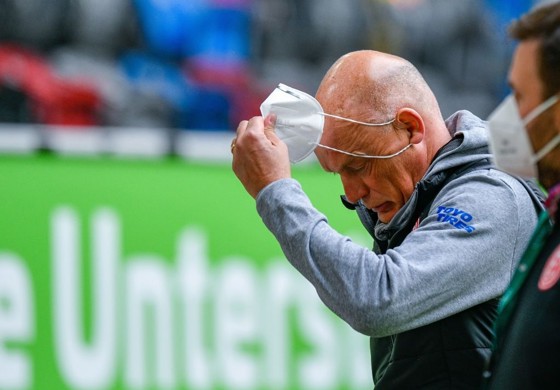
Your first game against Paderborn ended 0-0 and under normal circumstances you would have had 45,000 fans behind you – so what are your thoughts about playing matches behind closed doors?
“Having our fans would have made a huge difference. We have a big following and so it was a definite disadvantage for us. For teams who are fighting for survival, it is also a disadvantage because the games where they need to get their points will be at home in front of their fans where that passion and desire can filter down from the stands. The emotions at those games can mean players giving an extra 5% or more and I think that could be crucial in some matches. In our first week of fixtures, there were more away wins than home wins and I think this is a result of having no support in the stadiums. For players and teams who are very technical, they will have an advantage when they play away because the home side doesn’t have that added passion from their fans behind them.”
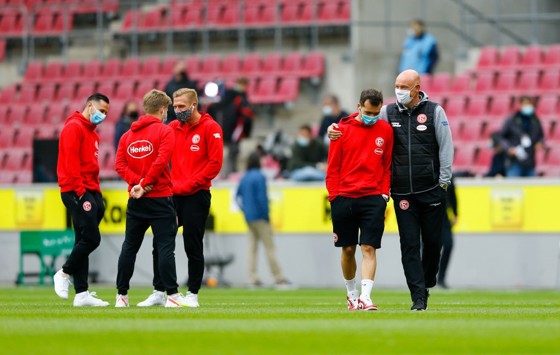
So, do you have sympathy for the teams struggling in the Premier League and their concerns?
“Well neutral venues weren’t discussed for Bundesliga matches. But we had to finish our season to complete our contractual obligations with broadcasters because if we didn’t, Bundesliga 2 and 3 would fall apart without the outstanding payments from Sky which a lot of clubs are dependent on. There was no other solution but to complete our seasons.”
Another fear in England is that crowds will gather outside stadiums when games are being played – has that happened in Germany?
“Not at all. The German public are very understanding of the situation and as the restrictions are eased, things get easier but people are still not allowed to gather in numbers greater than three or four so it has not happened and I think people don’t want to put themselves at risk.”
Are you enjoying your first Bundesliga job?
“Very much. We have a derby against Schalke on Wednesday evening and Bayern Munich at the weekend. When I arrived, we were bottom of the table and we are now third from bottom, so we’ve seen a definite improvement, but we need to turn some of our draws into wins. There is a process of improving, getting better and being consistent but we are just taking it game by game and though there will be twists and turns, so we just need to keep calm and carry on as the English phrase goes.”
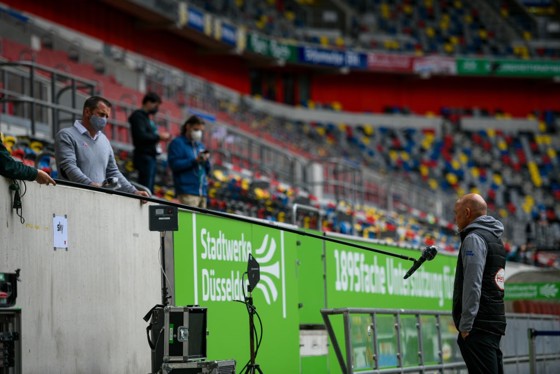
Was working in Germany your ultimate goal as a coach?
“I was working really hard for this – 16 years as a coach – but people still ask me where my home is and I still feel Manchester is my spiritual home and we intend to return there one day. But to fulfil managing in my own country was a dream and I was fortunate that things went well at Malmo because Sweden is very close to Germany and that helped me get noticed and I am just happy to be here and working hard so it’s a case of far, so good.”
Finally Uwe, Dusseldorf have an extra 50,000 fans in England now with the City fans all willing you to succeed…
“That would be fantastic! The City fans have always been incredible towards me and willed me to do well and it is, of course, reciprocated. I hope everything goes well for City when football returns and I will, of course, be watching the results.”

